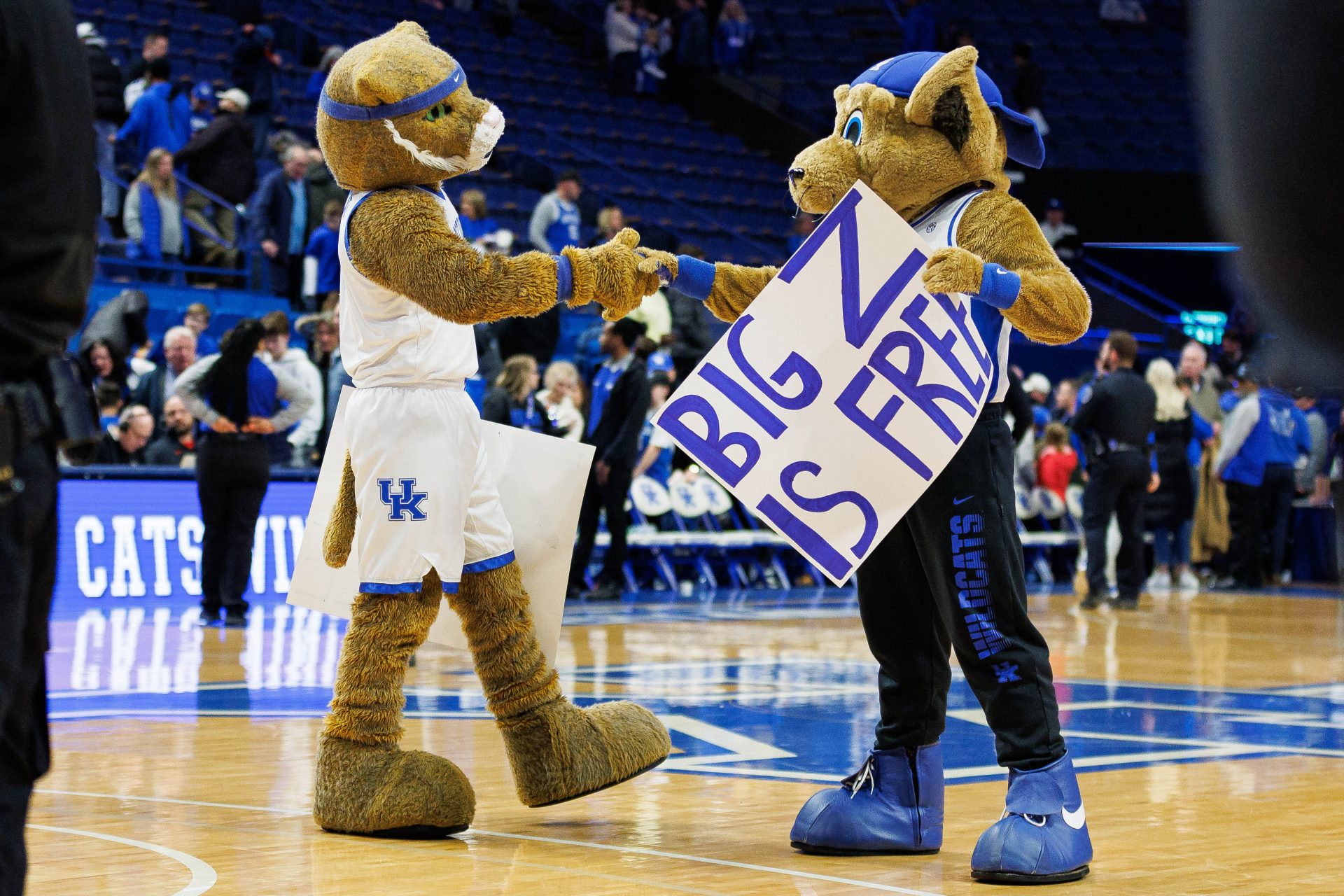As many may know, there are a lot of universities and institutions that utilize the Wildcat nickname in college athletics.
“Wildcats” share the fourth most used nickname in D-I athletics, tied with “Cougars,” each represented by 32 institutions. The top three mascots are “Eagles” with 61 schools, “Tigers” with 46, and “Bulldogs” with 39.
But the most popular Wildcat in Division I is the Kentucky Wildcat.
Undeniably, the Kentucky Wildcats mascot and logo are some of the most recognizable in college athletics.
But what is the history behind Kentucky becoming the Wildcats?

Who (or What) Is the Kentucky Wildcat Mascot?
The University of Kentucky’s wildcat mascot has a fascinating history dating back to 1921. The original mascot was a live mascot named “Tom.” Tom was a bobcat, a kind of wildcat that lives in Kentucky, and he was brought to games in a special cage to cheer on the team.
After Tom, there were a few other live wildcat mascots, like “TNT” and “Whiskers,” but they didn’t like being held in captivity and were challenging to manage at sporting events. Eventually, the university stopped having live wildcats at games.
In 1947, the school newspaper, “The Kentucky Kernel,” ran an article entitled “Live Wildcat Years Ago, Why Not Now?” This article sparked some conversations between alumni and university staff, so the decision was made to return to a live mascot.
The university brought in a wildcat named “The Kentucky Colonel.” Unlike the other live mascots, she was easier to manage and seemed to enjoy human interaction. She stayed with the university for seven years, three times longer than any other live mascot in Kentucky history.
The last live wildcat mascot was “Baby,” who appeared at two games in 1969. But after those games, the university decided it was better for wildcats to stay in the wild, where they belong, and they stopped bringing live wildcats to games.
Today, the university’s mascots are friendly, costumed characters who love to cheer on the team with the fans.
The University of Kentucky proudly features two popular mascots: the Wildcat and Scratch. The Wildcat first appeared during the 1976-77 academic year, with Gary Tanner bringing the character to life, entertaining fans at Commonwealth Stadium and Rupp Arena during athletic events.
Over time, Scratch, a more child-friendly figure who also leads the UK Junior Wildcat Club, complemented the original Wildcat mascot.
Both mascots are staples at football and basketball games, regularly attend academic events, and serve as ambassadors for the university. Scratch earned recognition in 2003 and 2004 by being named to the Capital One All-America Mascot Teams and competed for the title of Capital One Mascot of the Year.
Why Is Kentucky the Wildcats?
This nickname, “Wildcats,” became associated with Kentucky shortly after their 6-2 football victory over Illinois on Oct. 9, 1909.
Following the game, Commandant Philip W. Corbusier, then head of the military department at what was then referred to as State University, praised the team during a chapel service, stating that they had “fought like Wildcats.”
The name quickly gained popularity among students, fans, and the media as they all began referring to teams representing the university as “Wildcats.” This led to an official adoption by the university
For many years, women’s teams at the university were referred to as the “Lady Kats.” But in 1997, Kentucky declared that all of its athletic teams, despite gender, would be fully known and recognized as “Wildcats.”
College Football Network has you covered with the latest news and analysis, rankings, transfer portal information, top 10 returning players, the 2024 college football season schedule, and much more!

